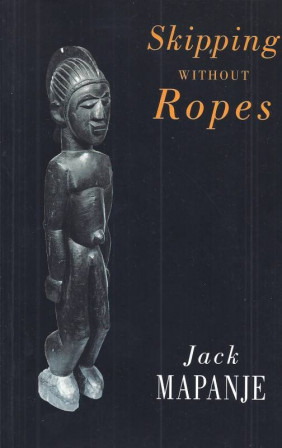 En 1981, Jack Mapanje publie son premier recueil, Of Chameleons and Gods, alors qu’il est encore étudiant en Angleterre. Cette critique ouverte du régime en place à l'époque au Malawi lui vaut l’attention des sbires du président à vie Hastings Banda. Emprisonné en 1987 pendant trois ans et sept mois dans les geôles du dictateur malawite, sans accusation précise ni procès, le poète a probablement dû sa libération au mouvement de solidarité internationale qui s’est constitué autour de lui. Mais il a préféré choisir l’exil à sa sortie de prison. Il vit donc désormais à York, au Royaume-Uni, et continue à enseigner l’anglais, ce qu’il avait commencé à faire avant sa détention arbitraire ; il lit dans les écoles ou les prisons et partage son expérience hors du commun.
En 1981, Jack Mapanje publie son premier recueil, Of Chameleons and Gods, alors qu’il est encore étudiant en Angleterre. Cette critique ouverte du régime en place à l'époque au Malawi lui vaut l’attention des sbires du président à vie Hastings Banda. Emprisonné en 1987 pendant trois ans et sept mois dans les geôles du dictateur malawite, sans accusation précise ni procès, le poète a probablement dû sa libération au mouvement de solidarité internationale qui s’est constitué autour de lui. Mais il a préféré choisir l’exil à sa sortie de prison. Il vit donc désormais à York, au Royaume-Uni, et continue à enseigner l’anglais, ce qu’il avait commencé à faire avant sa détention arbitraire ; il lit dans les écoles ou les prisons et partage son expérience hors du commun.
Sa poésie, dans tous ses recueils subséquents, reste fortement imprégnée de cette expérience carcérale. On y trouve aussi beaucoup de métaphores et de personnifications à base d’animaux africains, dans un style qui demeure cependant narratif et accessible au plus grand nombre. Mapanje, à travers son sort personnel, étend à tous les opprimés africains et d’ailleurs sa compassion poétique. Je ne le connaissais pas lorsque j’ai écrit Ptérodactyle en cage — pourtant, ce texte résonne maintenant comme s’il avait été pensé après l’avoir entendu partager les anecdotes sombres mais toujours rehaussées d’humour de sa vie en prison. Y a-t-il vraiment des hasards en poésie ?
En tout cas, pour cette anthologie subjective, voici un poème qui ne parle pas, justement, de la prison, mais tout aussi engagé.
Jack Mapanje, Skipping without Ropes, Bloodaxe Books, ISBN 9781852244125.
The Child That Now Hurts (A Poem for Rwanda)
This child that hurts today was hers
once, sleeping soundly on her back,
braced by glowing kitenge as mother
worked the ridges of her millet field
This son that whimpers in his sleep was
the son she pined for once upon years,
when he cried mum breast-nourished
him under the shade of her succulent
Banana fronds; this boy turned bones
strapped on mum’s emaciated back was
hers, running up and down the sausage
trees her millet fields, inventing cars
From contraptions of bicycles, spokes and
clothes-hangers, becoming the man who
would weave the reed and bamboo granary
for her millet harvest. But when the war
Eventually came, the war between mum’s
brothers’ houses, this war without a name
when this alien encounter spilled bloody
heavy rains, washing away foundations
of sausage trees, millet fields, the bananas,
men, women, children, goats and chickens;
when the grass-thatched houses began to
crumble, swirling, floating away, mother
Had to run for her life, the son on her back
unable to reap the millet of her sweat; now
having crossed the thorny bushes, craggy
cliffs, steep hills and valleys in the exodus
Of this hostile amalgam of dust and blood,
this blood whose roots no mum or child
can fathom; today, when his mum’s feet
refuse to lift, badly blistered in her run from
The enemy — her own people; today when
the child on her back gets too ponderous
and the strings of kitenge biting severely into
her shoulder’s flesh snap; even the mother
Must retire and lay her son by the way-side
for the foraging hyenas to assault — better
that indignity of ravaging beasts than dying
with his bones forever girdled on her back.



